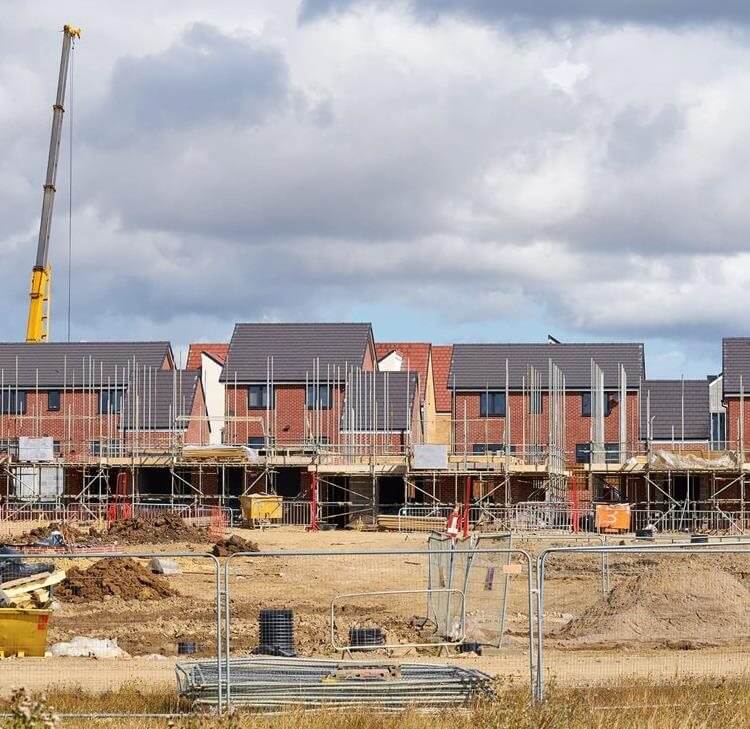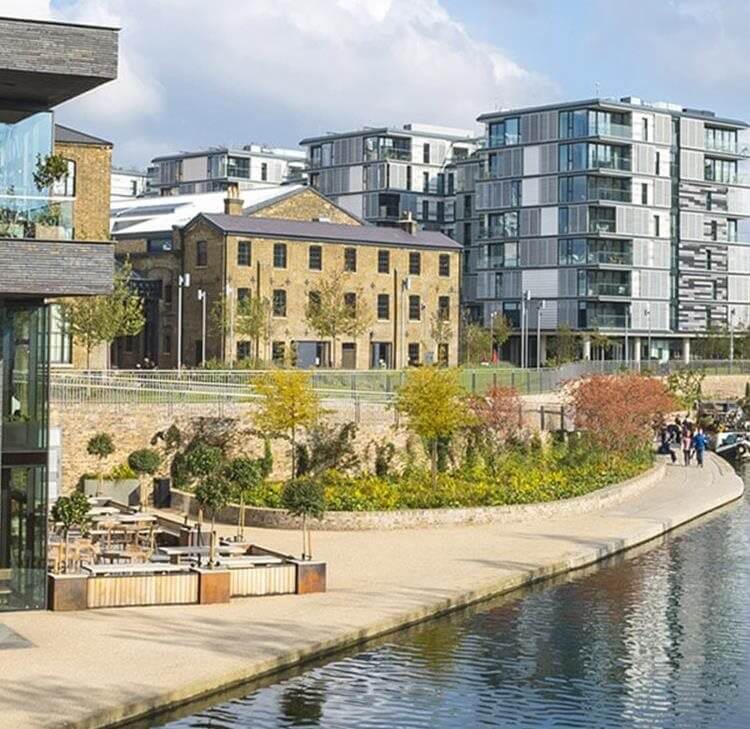We brought together specialists from the public, private and third sectors to discuss the role and purpose of community engagement in regeneration schemes.
Chaired by Thomas Howard, Partner specialising in regeneration, we considered the need to regenerate our high streets and town centres, the challenges preventing the delivery of those plans, and ideas to overcome those challenges.
We were joined by clients and contacts from Cheshire East Borough Council, Montagu Evans LLP, New Local, Patch Places Ltd, Porter Brook & Associates Ltd, and Watford Borough Council.
With everyone agreeing that no “one size fits all” approach exists, ensuring that bespoke solutions have community support seems obvious, but the discussions highlighted issues in identifying exactly what the community is, and in getting proper engagement to drive a scheme.
Our discussion took place only days after the general election and a series of government announcements. In particular, proposed changes to the National Planning Policy Framework and Chancellor Rachel Reeves’ statement that big development decisions will be made “nationally, not locally” raised the question of whether community engagement might diminish.
This backdrop of change and freshness added an extra dimension to the discussions, but we concluded that the right kind of engagement still has a vital role to play.
Summary
- City and town centres must move away from over-reliance on retail as it undergoes structural change and embrace a combination of living, working, studying and spending leisure time via regeneration plans. In particular, urban areas should offer a destination for socialisation and human connection that can’t be accessed elsewhere
- Efforts to regenerate high streets are less likely to face local opposition and don’t always require large-scale associated investment in physical infrastructure, while creating new residential accommodation drives new footfall for local businesses and utilities such as local transport networks
- Alternative uses for empty units could include libraries used as community hubs and healthcare provision such as walk-in centres and community diagnostic centres, tying into the NHS’ strategy to move from acute care settings to delivering health services in the community. However, this will incur financial and practical challenges.
- However, it’s also more difficult to develop a sense of community in town and city centre developments due to high density nature, and therefore having a dedicated engagement strategy is important to fostering a sense of ownership among new and existing residents
- Meaningful and timely engagement with residents, visitors and businesses – which factors in the diversity of a community by including young people and individuals from ethnic minority backgrounds – is essential to achieving community buy-in and should happen before any decisions are made rather than to validate proposals. Consideration should be given to issues such as protection and enhancement of heritage and natural assets, access to physical infrastructure, how to attract independent businesses, and reuse of dilapidated buildings.
Our team

Thomas Howard
Partner

Zo Hoida
Partner

Victoria Thourgood
Partner
Related expertise
You may be interested in...
Press Release
Browne Jacobson returns to UKREiiF 2025
Legal Update
Local Nature Recovery Strategies: A successful step in nature recovery
Press Release
Browne Jacobson advises Norwich City Council on Anglia Square regeneration scheme
Legal Update
Refining the UK subsidy control regime consultation
Legal Update
Navigating the Levelling Up and Regeneration Act 2023: Implications for retailers with vacant premises
Legal Update
Roundtable report: Community engagement in high street regeneration
Press Release
Browne Jacobson sponsors public sector think tank on new report
Press Release
Browne Jacobson advises London Borough of Sutton on major town centre regeneration
Press Release
Browne Jacobson supports Cheadle Market purchase as local authority plans town centre regeneration
Legal Update
Delivering EV charging infrastructure: The local government perspective
Press Release
Browne Jacobson to lead discussions on the future of real estate and infrastructure at this year’s UKREiiF 2024 event
Legal Update
Biodiversity Net Gain (BNG): Are we ready for it?
Legal Update
The Levelling-up and Regeneration Act 2023
Press Release
Browne Jacobson advise North East Lincolnshire Council on Property Sale
Press Release
Browne Jacobson advise Platform Housing on landmark deal, creating over 300 affordable and sustainable homes
Press Release - #BeingBrowneJacobson
Building our future town centres: advising local authorities on landmark acquisitions
Legal Update
Higher-risk buildings – are you ready for 30 September 2023?
Legal Update
Utilising prime retail sites to improve the health of our nation
Legal Update
Retirement housing: A solution to our care and housing crises?
Legal Update
Back in the (Investment) Zone… sort of
Legal Update
A new era of opportunity for high street regeneration?
Legal Update
Regeneration: what role can universities play?
Legal Update
Section 106 Agreements: I’m not dead yet
Press Release
UK and Ireland law firm Browne Jacobson joins UKREiiF 2023
Published Article
Combined County Authorities - Key differences to Combined Authorities
Legal Update
Biodiversity Net Gain — Government publishes consultation response
Opinion
‘Awaab’s Law’- a significant amendment to the Social Housing Regulation Bill
Press Release
Browne Jacobson’s real estate specialists advise Chesterfield Borough Council on prestigious new development - One Waterside Place
Press Release
Browne Jacobson advise High Peak Borough Council on future high street funded acquisition as part of Buxton regeneration vision
Published Article
What are freeports and what benefits could they offer?
Legal Update
Biodiversity Net Gain: positive for nature and an opportunity for landowners
Legal Update
Improving the performance of the NSIP planning process and supporting local authorities
Legal Update
Regeneration funding: Securing Compulsory Purchase Orders in the face of escalating building costs
The focus on the Levelling Up agenda and the availability of grant funding, means there are numerous important regeneration schemes actively being pursued across the country. With ever-escalating project and building costs, in many cases, applications that were made for grant funding were based on costs contingencies that have already been exceeded.
Legal Update
Conservation Covenants – what are they and how will they affect you?
Published Article
Levelling up – the role of public and private partnerships
With aims to level up the UK, and ensure that everyone has the opportunity to flourish, public and private partnerships will be critical success factor. In this article, we look at the role that private finance can play in the performance of a local area and how it might link to regeneration. We also consider the role of central government and regional mayors.
Opinion
Responding to Grenfell – Slow progress is better than none
As the Grenfell Inquiry continues, how have the Phase 1 recommendations changed the fire safety and building safety landscape?
Legal Update
Balancing homelessness duties and housing stock: all change?
On 4 May 2022, the Court of Appeal handed down judgment in the joint case of R (Elkundi and others) -v- Birmingham City Council and R (Imam) -v- London Borough of Croydon [2022] EWCA Civ 601.
Published Article
Queen’s speech: planning reforms to be tackled via Levelling up Bill
Legal Update
Is this the end of Section 106?
The Levelling-up and Regeneration Bill was introduced to Parliament on 11 May 2022. In this Bill, and in accordance with earlier reports, the government intends to replace section 106 agreements and the existing Community Infrastructure Levy (CIL) with a new Infrastructure Levy.



































